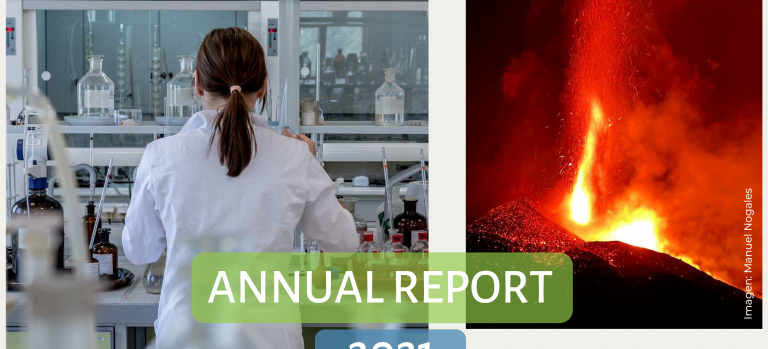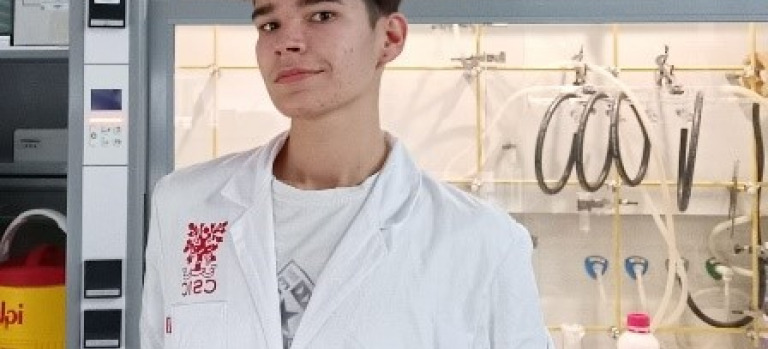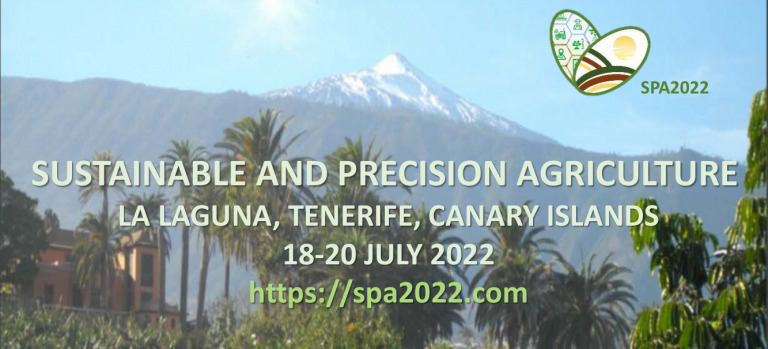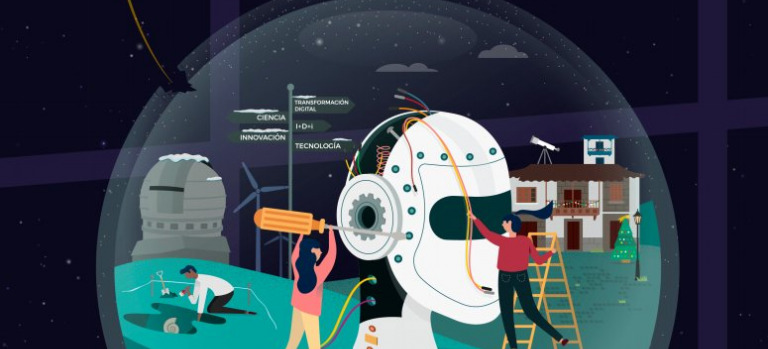
Latest News
Here you will find the latest news on research, events, activities and new findings at the Institute of Natural Products and Agrobiology.
Upcoming Events

Publicaciones recientes

Alginate Microencapsulation as a Tool to Improve Biostimulant Activity Against Water Deficits
Climate change is reducing agricultural productivity through altered weather patterns and extreme events, potentially decreasing yields by 10–25%. Biostimulants like pyroglutamic acid can enhance plant tolerance to water stress, but their rapid degradation in the soil limits effectiveness. Encapsulation in alginate matrices promises to be a good solution, protecting the compound and enabling controlled release. This study reports, for the first time, that encapsulated pyroglutamic acid markedly enhances drought tolerance in tomato and maize plants. The encapsulation strategy reduces effective concentration by an order of magnitude while significantly improving water use efficiency, photo-synthetic performance, and overall stress resilience. These findings demonstrate that alginate-based encapsulation substantially increases biostimulant uptake and efficacy, providing a novel and efficient strategy to mitigate water stress in crops, with important implications for climate-resilient agriculture. Two encapsulation methods for generating the alginate microcapsules are compared: ionic gelation with Nisco® system and the electrospray technique.
Jiménez-Arias, David; Morales-Sierra, Sarai; García-García, Ana L.; Herrera, Antonio J.; Pérez Schmeller, Rayco; Suárez, Emma; Santana-Mayor, Álvaro; Silva, Patrícia; Borges, João Paulo; Pinheiro de Carvalho, Miguel Â. A.

Cysteine Alkylation in Enzymes and Transcription Factors: A Therapeutic Strategy for Cancer
Metabolic enzymes and cancer-driving transcriptions factors are often overexpressed in neoplastic cells, and their exposed cysteine residues are amenable to chemical modification. This review explores cysteine alkylation as a cancer treatment strategy, focusing on Michael acceptors like curcumin and helenalin, which interact with transcription factors NF-κB, STAT3 and HIF-1α. Molecular docking studies using AutoDockFR revealed distinct binding affinities: curcumin showed strong interactions with STAT3 and NF-κB, while helenalin exhibited high affinity for STAT3 and HIF-1α. Synthetic compounds like STAT3-IN-1 and CDDO-Me demonstrated superior binding in most targets, except for CDDO-Me with HIF-1α, suggesting unique structural incompatibilities. Natural products such as zerumbone and umbelliferone displayed moderate activity, while palbociclib highlighted synthetic-drug advantages. These results underscore the importance of ligand−receptor structural complementarity, particularly for HIF-1α’s confined binding site, where helenalin’s terminal Michael acceptor system proved optimal. The findings advocate for integrating computational and experimental approaches to develop cysteine-targeted therapies, balancing synthetic precision with natural product versatility for context-dependent cancer treatment strategies.
Curieses Andrés, Celia María; Lobo, Fernando; Pérez de Lastra, José Manuel; Bustamante Munguira, Elena; Andrés Juan, Celia; Pérez-Lebeña, Eduardo.
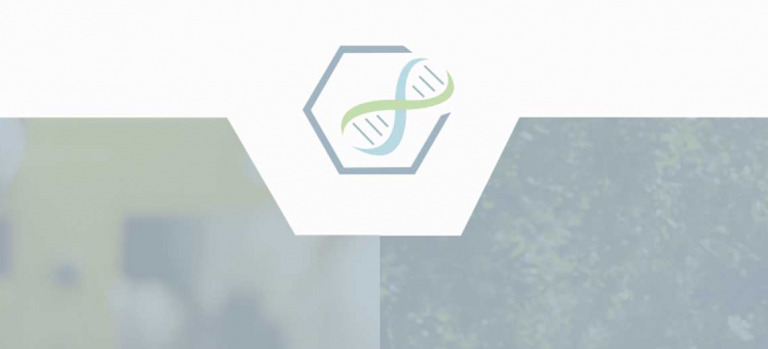
Introduction: The Past and Future of Natural Wine
Natural wine is a captivating and rapidly evolving phenomenon in the world of viticulture and winemaking. This movement, characterized by minimal intervention, low or no chemical additives, and a focus on terroir-driven expressions of grapes, has ignited a passionate following among wine enthusiasts, sommeliers, and eco-conscious consumers. It's more than just a beverage; it embodies a philosophy that aligns with contemporary sustainability and wellness trends. Though natural wine enthusiasts have produced ample coverage of the natural wine movement in books, essays and films, academics have lagged behind in their examination of this global phenomenon. In Uncorked: Negotiating Science and Belief in the Natural Wine Movement, scholarly discussion reaches across disciplines to offer valuable insights for researchers, producers, wine enthusiasts and anyone with an interest in this movement. Exploring the relevance of natural wine offers a unique lens through which to examine the intersection of tradition, innovation, environmental stewardship, and the evolving tastes of modern consumers. Through the stories of the winemakers, the science behind natural fermentation, and the cultural and historical context, this book aims to provide a comprehensive look at how this movement is shaping the future of wine and our relationship with the natural world. Each essay from a thought leader in their respective field delves deep into the historical, ecological, and sociocultural dimensions of natural winemaking, shedding light on its ancient roots, ecological practices, and the philosophical underpinnings that drive the movement. Discussions of regulatory and consumer aspects will also elucidate the practical considerations of making and selling natural wine. Uncorked: Negotiating Science and Belief in the Natural Wine Movement is a groundbreaking edited book that offers a comprehensive and scholarly exploration ofthe world of natural wine. This interdisciplinary volume brings together leading experts in fields ranging from enology and sensory studies to anthropology and philosophy, creating a rich tapestry of insights into the production, consumption, and cultural significance of natural wine. Academics, winemakers and wine enthusiasts alike will be illuminated by this volume.
Alonso-González, Pablo; Parga-Dans, Eva.
Blog
The IPNA blog gathers informative articles on the different research projects developed in the centre, the latest advances in science and other topics of interest regarding scientific culture.

